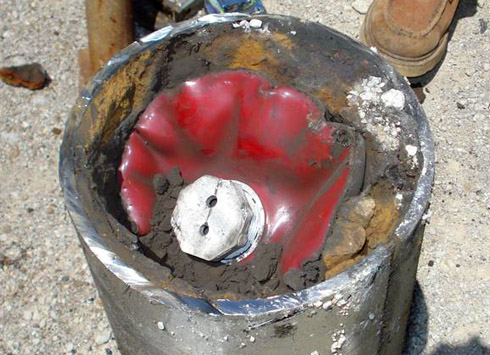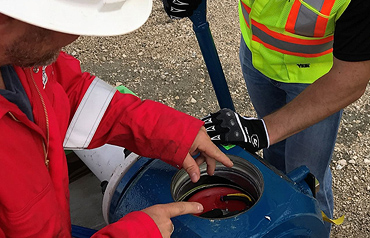Pig Tracking
Pig Tracking System
Pig Tracking is a method of verifying either the pigs location or movement through the line. Tracking the movement reduces the search area in the event a pig does become lost or stuck in the line. This is very beneficial in lines that are not pigged routinely and especially in lines that have never pigged before.
The pig tracking system consists of a Transmitter and a Pig Tracking Receiver (PTR). The transmitter is inserted and secured into the pig prior to its launch. Polly, Turbo and Mandrel pigs can all be made to hold the appropriate size transmitter. The transmitter uses low frequency signals to penetrate the pipe walls. When these signals are picked-up by the PTR it emits both an audio and visual notification.
The standard method of using the pig tracking system is setting up stations and moving down the pipeline in a “leap frog” manner, which leave smaller sections of the line to search in the event the pig does not reach the 2nd station.
Model 1 with PT 101 Transmitter
Recommended for use in most 4” to 6” lines with 3D bends or greater. The unit itself is 4.188” Long with a 1.000” Diameter and capable of up to 60 hours of signal time.
Model 2 with PT 107 Transmitter
Recommended for use in most 6” to 8” lines with 3D bends or greater. The unit itself is 6.313” Long with a 1.250” Diameter and capable of up to 60 hours of signal time.
Model 4 with PT 275 Transmitter
Recommended for use in most 10” and above lines with 3D bends or greater. The unit itself is 7.500” Long with a 3.00” Diameter and capable of up to 200 hours of signal time.
Model 12 with PT 750 Transmitter
Recommended for use in most 12” and above lines and above with 3D bends or greater. The unit itself is 13.875” Long with a 3.563” Diameter and capable of up to 500 hours of signal time.





